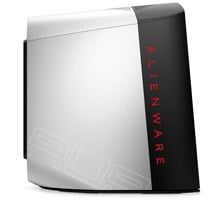Xotic PC Executioner Stage 4 Gaming PC Review
How We Configured Our Test Systems: We configured other reference test systems in this article on an EVGA X79 Dark motherboard powered by an Intel Core i7-4960X six-core processor and 16GB of Corsair DDR3-1866 RAM. The first thing we did when configuring the test system was enter the system UEFI and set all values to their "high performance" default settings and disable any integrated peripherals that wouldn't be put to use. The memory's X.M.P. profile was enabled to ensure better-than-stock performance and the solid state drive was then formatted and Windows 8.1 Professional x64 was installed. When the installation was complete, we fully updated the OS and installed the latest DirectX redist along with all of the drivers, games, and benchmark tools necessary to complete our tests.
Xotic PC's Executioner Stage 4 system was tested in an "as delivered" configuration, with the only modification being a quick update to the latest NVIDIA WHQL drivers for the pair of EVGA GeForce GTX 980 Superclocked graphics cards. It was only in our overclocking test area that we modified any of the speeds and feeds of the system.
|
|
Gaming Tests Only - HH Test System: |
All Tests - Xotic PC Executioner: Intel Core i7-5960X (3GHz, Eight-Core) Asus X99-Deluce (Intel X99 Express) EVGA GeForce GTX 980 Superclocked x 2 16GB Corsair DDR4-2066 Intel 730 Series 480GB SSD 2TB WD HDD Integrated Audio Integrated Network |
Relevant Software: Windows 8.1 Pro 64-bit DirectX April 2011 Redist AMD Catalyst v14.30.1005 B2 NVIDIA GeForce Drivers v353.06 Benchmarks Used: 3DMark "Fire Strike" Bioshock Infinite Hitman: Absolution Metro Last Light Sleeping Dogs PCMark 8 Cinebench R11.5 |
In a couple of CPU-centric, general purposes tests, we've compared the Executioner to other reference gaming PCs from various system integrators. Again, these are relative metrics to offer watermarks of performance levels in specific applications. Since we have direct A/B comparison data in these test conditions, we opted to compare the Executioner to these other high-end systems on the market.
|
PCMark 8 v2 is the latest version in Futuremark’s series of popular PC benchmarking tools. It is designed to test the performance of all types of systems, from tablets to desktops. PCMark 8 offers five separate benchmark tests--plus battery life testing—to help consumers find the devices that offers the perfect combination of efficiency and performance for their particular use case. This latest version of the suite improves the Home, Creative and Work benchmarks with new tests using popular open source applications for image processing, video editing and spreadsheets. A wide variety of workloads have also been added to the Work benchmark to better reflect the way PCs are used in enterprise environments.
These tests can be run with our without OpenCL acceleration. We chose to run with OpenCL acceleration enabled to leverage all of the platforms’ CPU and GPU compute resources.

|

The Executioner had an easier time vaulting to the top spot in Cinebench, a rather brutal benchmark takes into account both multi-threaded and single-threaded performance. In this case, the Executioner's eight cores and 16 threads gave it an advantage over the other systems and their respective processors, at least in multi-threaded performance. When looking at single-core results, the Executioner fell towards the lower end of the pack. In that way, Cinebench underscores the tradeoff you get with the Core i7-5960X, which is more cores and threads at the expense of top-end clockspeeds.







